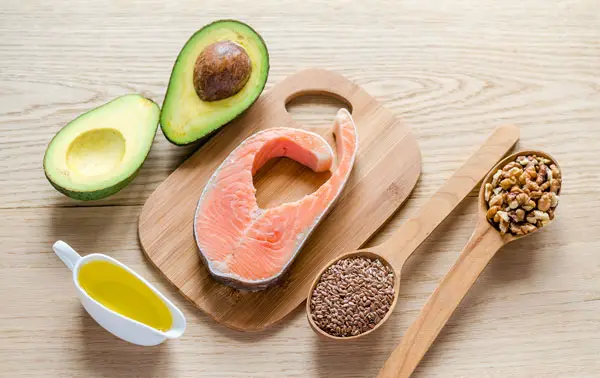Any successful athlete will tell you nutrition is key for success. To achieve peak physical performance, athletes must only put food that will help them into their bodies. This does not necessarily mean only ‘good’ food.
A lot of meats and sugars are consumed by athletes to stay on top of their game. Here are five golden nutrition rules for athletes.

Eat Everything
A key part of an athlete’s diet is to consume all food groups. Athletes should not avoid any foods unless restricted by allergies, as all types of foods have different benefits. Younger athletes, or just people, in general, tend to cut out certain foods to gain muscle or lose weight. This is not good for athletes as losing weight is not something beneficial, unless you’re in a weight division. A plethora of good nutrients exists in sports drinks, now at guardianathletic.com.
Losing weight as an athlete often means losing muscle. This will often make you less athletic which results in worse performance in your sport. Losing explosiveness and speed is often something that comes with losing weight for younger athletes. When you avoid eating and try to lose weight, you lose key nutrition. Carbohydrates and protein are key to providing energy and muscle building nutrition.
Without the consumption of carbs and protein, you will start to lose energy and muscle. Losing both of those things will make you start to feel fatigued and unmotivated. Since professional athletes are so active, they consume as much as they can. Without eating all that they eat, they will start to lose energy. Consider how active you are, and put together a meal plan to accommodate it. If you tend to exercise and sweat a lot, you will want to consume more than average to build muscle and energize yourself.
Eat Quality

Although athletes do not avoid any particular food groups, they do eat different portions of everything. An athlete must watch what kinds of things they put in their body. Foods such as ice cream and chocolate must be limited while foods such as greens and protein are encouraged. Eating limited amounts of bad food allows athletes to still consume foods that taste good, as long as they get in the good foods they require.
Some diets for athletes mean consuming a lot of sugary foods. Studies have shown that athletes can handle the downsides of sugar better than average people. Depending on how active you are, sugar can have a limited effect on your health. Sugar has also been a good resource for athletes in need of a quick energy boost. Some muscle-building diets also require a large intake of sugar. The sugar can come in different forms such as candy or sugary drinks. This is because sugar spikes up insulin levels in the bloodstream, causing quicker muscle recovery.
Other bad foods can be good for athletes, while not being good for average people. Foods such as salt can be quite beneficial for an athlete’s performance. For active athletes, cramps can be quite common. The intake of salt can help limit the effects of cramps. Steady levels of sodium help prevent muscle weakness. Muscle weakness is what causes cramps. Athletes are very careful about what they put in their body, they understand the benefits and downfalls of certain foods, and when it is right to consume them.
A Large Intake of Carbs
For the average person, taking in a lot of carbs will promote weight gain. No carb diets are often recommended for people who are looking to lose weight. This is because when you limit your intake of carbs, you lower your insulin levels. When your insulin levels lower, your body burns stored fat, resulting in weight loss. This is not good for athletes as losing weight is bad for them. When an athlete loses weight, he loses strength.
Carbohydrates also provide key energy athletes need to perform. A low carb diet will make an athlete feel unmotivated and tired. When carbs are digested, they separate into three different things, glucose, fructose, and galactose. These provide energy when it is needed. Unused glucose gets stored away after energy is not needed. This glucose is saved for a further time when energy is needed. This is why athletes need carbs since they are so active, they need as much energy as they can get.
Athletes who limit their intake of carbs can often end up with injuries. This is because the lack of carbohydrates can negatively affect muscles during recovery. Recovery occurs after every workout and game.
Eat a Lot

Most athletes’ concern about eating is understanding how much to eat. If they eat too little, they risk losing key nutrients and losing weight. If they eat too much, they can put on unwanted weight. Unwanted weight is weight in fat, not weight in muscle. Unwanted weight will hinder an athlete’s performance.
It can slow them down and limit athleticism. The key for athletes is to eat a lot. Eating a lot will avoid the risk of losing weight, and will provide athletes with the energy needed to perform. This also makes it easier to avoid unwanted extra weight. If athletes notice themselves gaining extra weight, they can cut down on their food intake and exercise more.
Eating Your Lifestyle
An athlete’s lifestyle involves a lot of working out. This means an athlete must accommodate that. This requires a lot of carbohydrates and protein. If you are the type of athlete who needs to lose weight for a weigh-in, then eat accordingly. This is the only exception for an athlete to try and trim down. Whatever your lifestyle is, there is a way of eating that fits best for it.
Certain athletes have different ways of eating. Most eat to gain muscle, while some others eat to lose weight because they have to. Whatever the reason, there are ways to eat that will put you at your peak physical condition.









































